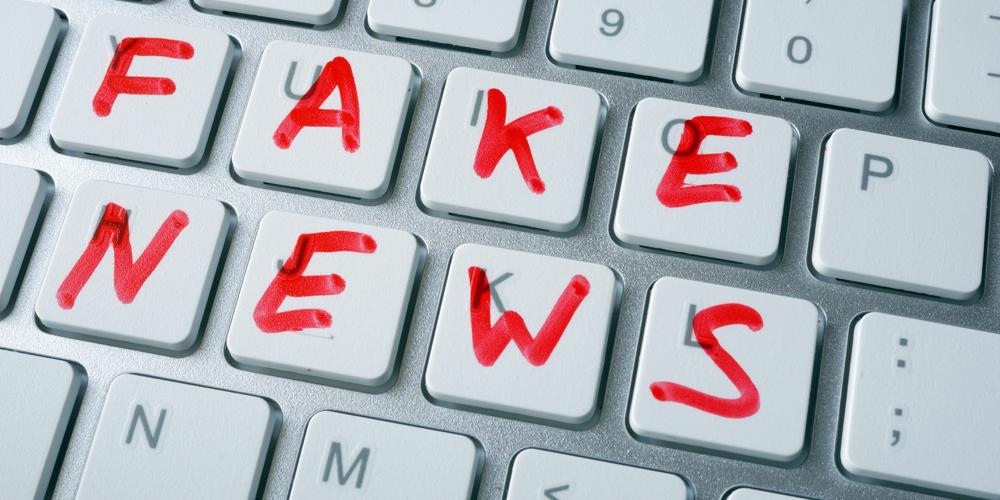By Sanni Alausa-Issa
Social media has changed human interactions. It took connectivity and knowledge sharing to unprecedented heights. Unfortunately, one of its downsides is that it has become a breeding ground for fake news and misinformation.
Recent developments, such as X’s (formerly Twitter) introduction of monetisation for user engagement, have brought this issue into sharp focus. The correlation between monetisation incentives and the spread of false information is alarming. It’s a challenge that calls for immediate action and collective responsibility.
Monetisation schemes that reward users for generating impressions and engagements have shifted the priorities of many content creators. This shift is subtle but profound. Rather than aiming solely for accuracy and credibility, some users are now driven by the allure of financial gain tied to their online presence. As a result, the quest for attention has started to overshadow the pursuit of truth.
Specifically, many users have thrown ethical considerations to the wind, resulting in an unsettling surge in the spread of fake news and misinformation. Under this shiny veneer of content monetisation is a troubling reality that we must all be worried about.
Recently, there was a viral video of a woman dancing and vaping shisha at a party with different captions stating that it was one of President Bola Tinubu’s ministers, Hannatu Musawa – Minister of Arts, Culture and Creative Economy. After a fact check by the Daily Trust, it was revealed that the woman in the video was a completely different person.
The consequences of content monetisation are evident in the alarming proliferation of fake news and misinformation. We’ve witnessed countless instances where individuals, driven by the promise of financial rewards, have spread false or misleading information to maximise their reach and engagement. These unverified claims and sensational stories have an uncanny ability to captivate audiences, leading to the rapid dissemination of falsehoods.
In the past, fake news was a sporadic menace. Today, it has become an endemic issue. Misleading headlines, dubious claims, and manipulated visuals are wielded as tools to attract clicks, likes, and shares. The consequences are profound, as misinformation infiltrates our collective consciousness.
Behind the scenes, social media platforms rely on algorithms to determine which content to prioritise in users’ feeds. Unfortunately, these algorithms appear to favour sensational, divisive, and attention-grabbing content. As a result, fake news stories that generate buzz and outrage are often amplified, reaching wider audiences and overshadowing credible information.
People make decisions based on the information they encounter online, and when falsehoods taint that information, the results can be disastrous. We saw this clearly during the COVID-19 pandemic. Misinformation shared about the Coronavirus influenced people’s attitude towards the origin of the virus, social distancing, and vaccine development. Undoubtedly, misinformation about health, politics, and many other topics has real-world consequences. So, what do we do?
Addressing this issue requires a holistic approach. Social media platforms are responsible for addressing monetisation incentives that fuel the spread of fake news. While some have taken steps to combat fake news, the urgency demands more. Enhanced content moderation, rigorous fact-checking, and greater transparency in their monetisation policies are essential steps. Public scrutiny and accountability ensure that profit-driven decisions do not compromise the integrity of information.
In addition to that, responsibility also rests with us, the users. We must cultivate critical thinking skills and practice due diligence before sharing or engaging with content. Educational institutions and Civil Society Organisations should prioritise media literacy programmes, empowering individuals to discern fact from fiction.
Furthermore, regulatory measures may be necessary to strike a balance between the profit motive and the public good. Governments and international bodies should explore ways to enforce standards that protect the accuracy and credibility of information disseminated on these platforms. For example, policymakers can develop guidelines that address the spread of fake news on social media platforms. Striking the right balance between freedom of expression and curbing misinformation is a complex task that requires our collective attention.
Without mincing words, the monetisation of social media platforms has inadvertently amplified the spread of fake news and misinformation. The consequences are far-reaching and demand our immediate attention.
As users, we must commit to being responsible by verifying information before sharing and supporting efforts to enhance transparency and accountability. We must engage in constructive discussions about regulating social media platforms to minimise the spread of fake news.
Our collective actions today will determine the quality of information we consume and its impact on society. The pursuit of profit need not come at the expense of truth and integrity. It is our responsibility to ensure that these values remain at the heart of our digital world. Let’s remind ourselves that a click, a like, or a share carries a weighty responsibility.

 Join Daily Trust WhatsApp Community For Quick Access To News and Happenings Around You.
Join Daily Trust WhatsApp Community For Quick Access To News and Happenings Around You.



